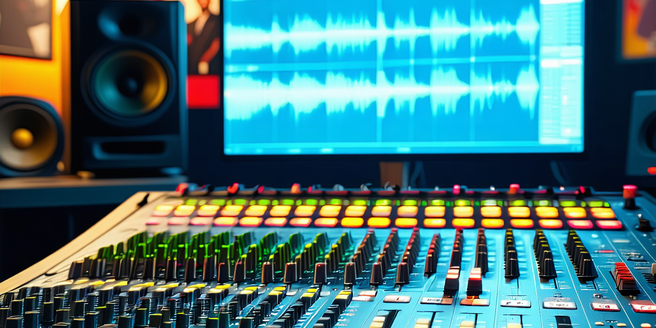Music Challenges With Rewards

Understanding the Appeal of Music Challenges
Music challenges have become increasingly popular due to their engaging nature and the opportunity they provide for musicians to showcase their talents. These challenges create a sense of community as participants and audiences alike rally around common music themes or goals. Social media platforms enhance this experience by allowing musicians to share their progress and achievements with a wide audience, thus building their own brand and follower base. Additionally, the structured format of challenges encourages discipline and consistency, which are vital traits for growth in any musical endeavor. The competitive element, coupled with peer recognition, motivates participants to push their boundaries and experiment with new styles. Overall, music challenges offer a fun and rewarding way for musicians to connect, improve, and enjoy their passion for music.
Types of Music Challenges That Offer Rewards
Music challenges come in various formats, each designed to inspire creativity while offering enticing rewards. One popular example is songwriting competitions, where musicians submit their original compositions to be evaluated by industry professionals. Winners may receive studio time, mentorship, or even recording contracts. Instrumental battles are another form, where virtuosos showcase their skills through improvisation or cover performances, with the chance to win musical gear or cash prizes. Virtual challenges have gained traction, particularly during global events, allowing participants to upload challenge videos online with hashtags for a chance to win based on likes or judges’ scores. Some challenges incentivize participants with scholarships or educational opportunities, encouraging learning and growth. Others might focus on just improving skills, offering badges and certification upon completion, fostering a sense of achievement.
How Music Challenges Fuel Creativity and Growth
Music challenges provide an excellent platform for creativity and personal growth among musicians. By setting a specific theme or goal, they encourage artists to think outside the box and explore new musical territories. This environment pushes participants to break free from routine practices and dive into uncharted waters, facilitating the development of new techniques and styles. The time-bound nature of many challenges also cultivates discipline, urging musicians to perfect their craft efficiently while sticking to deadlines. Furthermore, peer interaction within challenges fosters a learning environment where feedback and collaboration are embraced, opening doors for improvement and networking. These experiences not only enhance artistic capabilities but also boost confidence, preparing musicians for future performances or projects. Thus, music challenges act as a catalyst for innovation and skill expansion.
Exploring the Impact of Rewards on Participation
In the realm of music challenges, rewards play a significant role in driving participant engagement. The promise of a tangible prize, whether monetary, in the form of equipment, or as educational benefits, can significantly enhance motivation levels. Participants are often more inclined to invest their time and effort in a challenge when there is a potential payoff, compared to passion-driven activities alone. Moreover, rewards can attract more participants with diverse skill levels, enriching the competition’s diversity and vibrancy. These incentives also help to publicly recognize musical talent, providing participants with validation and encouraging further pursuits in their musical journey. The ripple effect of rewards extends beyond the challenge itself, often inspiring more musicians to participate in future events and competitions, ultimately fostering a thriving and competitive music community.
Tips for Participating in Music Challenges Effectively
With the growing popularity of music challenges, it’s essential for musicians to approach them strategically to maximize benefits. First, clearly understand the rules and objectives of the challenge to tailor your performance accordingly. It’s beneficial to watch past entries or winning performances to gauge the level of competition. Time management is crucial; allocate sufficient time for preparation and practice to avoid last-minute rushes. Engaging with other participants can provide support and insights, making the experience more enriching. Additionally, focusing on originality and the emotional connection in your performance can help you stand out. Being open to feedback, whether positive or constructive, is key to learning and improving. Lastly, remember to enjoy the process, as challenges are meant to inspire and delight, while contributing to your growth as a musician.